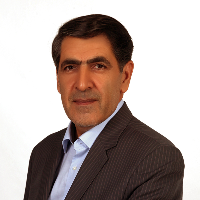Legitimacy and political participation in the thought of Shia Faqihs
A key important factor in Muslim countries and in relation to public domain, especially with regards to democracy is religious scholars’ viewpoints. Their jurisprudential perceptions which are based on Islamic resources (the Quran and narrations form the Prophet) and influenced by contextual elements such as time and geography have resulted in a wide spectrum of various and even contradictory positions. Given this, different questions arise about origins of legitimacy, compliance and political participation, e.g. how does Islam compromise with republicanism? And also; in an Islamic society the ruler is people’s representative who is appointed by them to govern the society on their behalf or he has custodianship over people? On what basis does an Islamic political system gain its legitimacy; people’s vote or religious authorities? And finally, what relationship does exist between people’s vote and the Guardianship of an Islamic Jurist or Wilayate Faqih? Some Shia-Muslim scholars in answering the above questions believe that the religious political authority is only for the prophet Muhammad and his infallible successors (P.B.U.T) and there is no such a right for anyone else. They restrict a faqih’s social-political authority only to the area which is known as Hesbiyah affairs in the Islamic literature. In contrast, those scholars who believe in the same authority with the prophet for the jurists have created three different discourses in this field. First: An Islamic political system obtains its legitimacy from the law of sharia and therefore people has no interference or contribution in this ground (the appointing theory or the law of sharia). Second: People freely and in accordance with collective wisdom choose an ئIslamic system to govern them (the representative theory). Third: those Islamic laws accepted by majority of Muslims is the basis of legitimacy in an Islamic political system (state-Imamat theory). In other words, the third discourse with differentiating between legitimacy and compliance stress on this fact that an Islamic political system will be actualized only if people’s vote meet with the law of sharia. According to this jurisprudential verdict, while the custodianship aspect of a ruler (wilayat) receives its legitimacy from the sharia- that is similar to the appointing theory- but it is the public vote that makes applicable the custodianship in the social-political arena; like the representative theory.
-
Pathology of Electoral Districting in Iran and Providing an Optimal Model; Case Study: the Islamic Consultative Assembly
Mehdi Heidarian, Zahra Ahmadypoor *, Ebrahim Roumina,
Geopolitics, -
Geopolitical Explanation of the Foreign Policy Strategy of the Islamic Republic of Iran in the Subcontinent (India and Pakistan)
Saied Mostafa Hosaini *, Yadollah Karimipour, Afshin Mottaghi, Javad T Etaat
Journal ofof Regional Planning,



